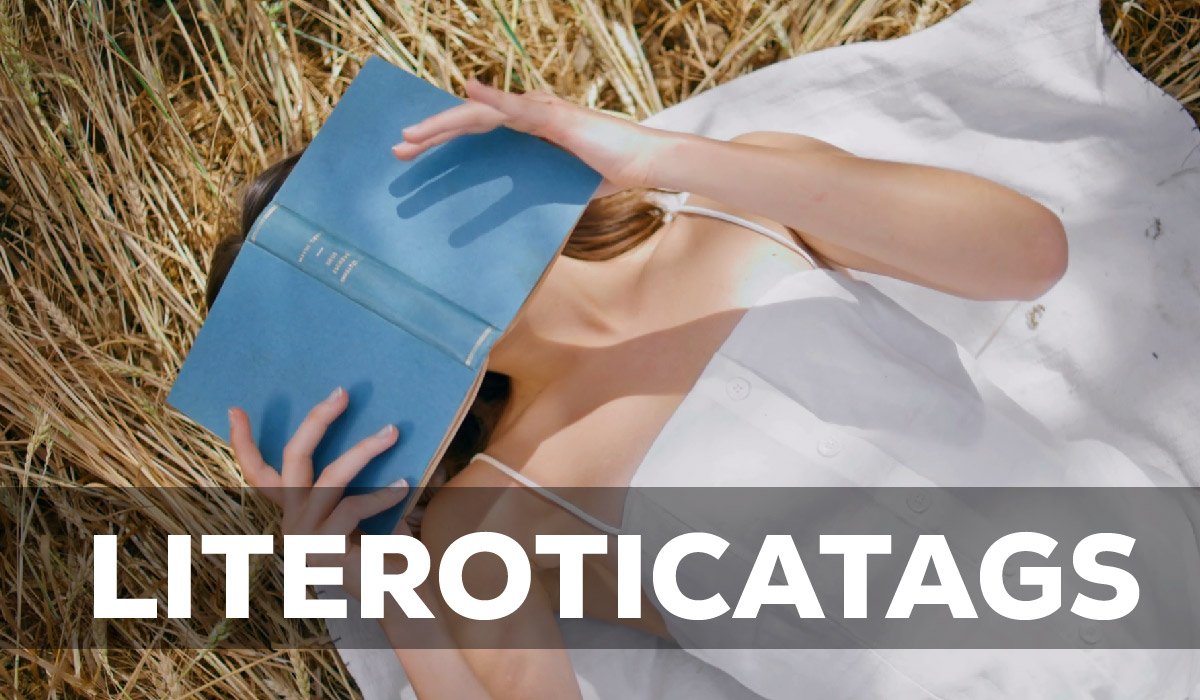In the vibrant world of online erotic storytelling, literoticatags have emerged as one of the most essential tools for both readers and writers. These small yet powerful keywords function as labels that identify the content, theme, tone, and characters within a story. For readers, they serve as a personalized map, guiding them toward the kinds of stories they prefer while helping avoid content that may not suit their tastes. For writers, literoticatags are like a spotlight—they increase visibility, help stories reach the right audience, and boost engagement with people who are specifically looking for that type of content. With thousands of new stories being uploaded on platforms like Literotica every week, navigating without tags can be time-consuming and frustrating. This guide is written to serve both passionate readers and aspiring authors by explaining what literoticatags are, why they’re crucial, how to use them effectively, and how to avoid common mistakes that could damage credibility or limit discoverability.
Introduction
Literoticatags are short descriptors or metadata keywords used to categorize and describe erotic stories published on digital platforms like Literotica, AO3, and others. They function by attaching specific labels to a story—labels that describe anything from the genre, relationship dynamics, sexual orientation, fantasy elements, specific acts, emotional tone, or even character types. For example, a story tagged as “Romance,” “BDSM,” and “Teacher/Student” will instantly tell readers what to expect. These tags are not only useful in organizing content for massive digital libraries but also serve a deeper purpose—they allow personalized discovery. Readers can filter through thousands of stories using tags that match their preferences, and writers can use these tags as strategic markers to highlight the true nature of their story without spoiling plot details. This dual role of discovery and personalization is why literoticatags have become an indispensable part of digital erotica.
Why Literoticatags Matter in Modern Erotica
In today’s fast-paced, content-saturated environment, the need to find relevant material quickly is more important than ever. For readers, literoticatags help narrow down a vast ocean of content into a tailored experience. Someone looking for “Slow Burn Lesbian Romance” doesn’t have to scroll endlessly—they can search or filter based on those exact tags. For writers, literoticatags provide a major visibility advantage. A story that includes relevant, well-thought-out tags is more likely to appear in filtered searches, trending categories, or algorithmic recommendations. This means more eyes on the content and more potential for followers and returning readers. For platforms, literoticatags are vital to curation. They improve user satisfaction by aligning recommended content with user interests and also help moderate or flag inappropriate material. Overall, these tags are not just labels—they are a core part of the user experience in online erotica.
The Anatomy of a Good Literoticatag
A good literoticatag should be clear, specific, relevant, and widely understood within the community. Tags typically fall into several key categories. Themes like “romance,” “revenge,” or “forbidden love” define the story’s emotional or narrative direction. Settings such as “office,” “medieval,” or “futuristic” tell readers where the story takes place. Actions describe specific content like “anal,” “pegging,” “masturbation,” or “orgy.” Character types can include “stepdad,” “alien,” or “vampire.” Lastly, tone/mood tags like “emotional,” “angsty,” “light-hearted,” or “dark” help set expectations for the emotional journey. The effectiveness of a tag lies in its ability to summarize a meaningful aspect of the story without giving too much away. Using these categories correctly not only improves reader targeting but also builds trust and consistency within an author’s body of work.
Popular Literoticatags and Their Meanings
Certain literoticatags appear more frequently than others because they align with popular reader interests and established content categories. Here are some examples:
| Tag | Meaning |
|---|---|
| Romance | Emotion-driven stories, often with happy endings. |
| BDSM | Power dynamics, dominance, submission, bondage, kink. |
| First Time | A character experiences sex for the first time. |
| Non-Consent | Sexual activity without full consent, often tagged clearly. |
| Incest | Family-based themes, typically fictionalized. |
| Slow Burn | Long buildup before characters become intimate. |
| Fantasy | Involves magic, creatures, alternate worlds. |
| Cheating | Involves betrayal or affairs outside of committed bonds. |
| Voyeurism | Watching others secretly or consensually. |
| Monster | Erotic stories involving supernatural or beastly beings. |
Each of these tags communicates crucial information that enhances story selection and prevents reader disappointment or discomfort. Readers know what they’re getting into, and writers attract the right audience for their niche.
How Literoticatags Enhance Reader Experience
Tags are the foundation of a more engaging and satisfying reading journey. With literoticatags, readers can filter out themes that may trigger discomfort or are simply unappealing. Whether you’re looking for wholesome “First Love” or wild “Monster Girl Seduction,” tags make it easy to zero in on the right content. Additionally, literoticatags support the discovery of new genres or fetishes that readers may not have known they enjoyed. Because tags reflect both surface-level and nuanced story elements, they provide deeper personalization and help readers form connections with specific authors or content styles. This personalization also improves retention, as satisfied readers are more likely to return, subscribe, or recommend the story.
How Writers Can Use Literoticatags to Get Discovered
Writers who use literoticatags strategically often see dramatically better results than those who don’t. When a story is tagged properly, it becomes discoverable in relevant searches and categories. For example, a story about a vampire seduction set in the 1800s might be tagged as “Vampire,” “Historical,” “Forbidden Love,” and “Dark Romance.” This clarity helps attract the exact audience the writer is targeting. Additionally, well-tagged stories tend to receive higher click-through rates, better ratings, and more engagement. Writers also use tags to signal story themes to their existing fan base, which improves consistency and reader loyalty. In short, literoticatags function as silent marketers for your stories.
Step-by-Step: How to Tag a Story Properly
Tagging a story isn’t about guessing—it’s about identifying the key elements that define the reader experience. First, choose a main theme: is it a love story, revenge tale, or supernatural drama? Next, determine the relationship dynamic, such as “Boss/Employee” or “Sibling Rivalry.” Then identify the core actions, such as “Oral,” “Group,” or “Voyeurism.” Don’t forget to label the tone, which might be “Emotional,” “Humorous,” or “Intense.” Use only the most essential and accurate tags to avoid clutter and confusion. If you try to add too many irrelevant tags just to attract clicks, you’ll hurt your credibility. Remember—clarity builds trust.
READ ALSO: Readmymanga com Review: The Best Ad-Free Manga Site in 2025
Writer Tagging Strategies That Work
There are several smart strategies to make the most out of literoticatags. Start by choosing a primary tag—the one most central to your story—and then add supporting tags that highlight subthemes or content details. Stay consistent across your story portfolio. If you always tag “Voyeurism” as “Voyeur,” don’t suddenly switch to “Peeping”—it may break your discoverability. Use A/B testing: post similar stories with slightly different tag sets and analyze which one performs better. Lastly, listen to reader feedback. If readers comment that the tags didn’t match the content, adjust accordingly. Learning from feedback can refine your future tagging strategy and increase engagement.
Mistakes to Avoid When Using Literoticatags
Tagging errors can significantly hurt your content’s reputation and discoverability. One major mistake is tag stuffing, where authors add too many unrelated tags in hopes of getting more clicks. This only dilutes your content and frustrates readers. Another is misleading tags—for example, labeling a story as “Consensual” when it clearly includes non-consensual elements. Not only is this misleading, but it can also violate platform rules. Some writers also skip tagging altogether, assuming the story will speak for itself. That’s a big mistake, especially in a keyword-driven discovery system. And of course, never use banned or restricted tags, which may result in your content being flagged, suspended, or removed.
Literoticatags and SEO – A Technical Perspective
From an SEO standpoint, literoticatags work similarly to metadata in blog posts or hashtags in social media. They improve search engine crawlability, organize semantic data, and boost keyword relevance for internal search engines on sites like Literotica. Well-tagged stories are more likely to appear in category listings, filtered search results, and even in personalized content recommendations. Tags can even improve Google indexing if your stories are hosted on a publicly searchable platform or if you’re cross-posting them on your author blog. For best SEO results, combine core tags with unique descriptors, and maintain consistency across your content.
Literoticatags in Community Culture
Literoticatags have also become a bonding element within online erotic communities. Tag-based writing challenges like “#SlowBurn Week” or “#TentacleTuesday” bring together authors and readers around common themes. Some readers curate personal “tag bundles” to share with others or use as bookmarks. There are even fanbases built around specific tags—for example, the “Monster Girl Romance” community has its own following, tropes, and dedicated writers. These communities thrive on consistent and thoughtful use of tags, making literoticatags an important part of digital social storytelling.
Inclusivity Through Literoticatags
Inclusivity is essential in erotic literature, and literoticatags play a huge role in making space for all voices. Tags like “Trans Romance,” “Asexual Intimacy,” or “Nonbinary Dom” allow readers from all walks of life to find stories that reflect their identities and experiences. It also helps marginalized writers reach their audience without being buried under generic categories. Culturally specific tags like “POC Love” or “Latina Heroine” add representation and dimension to a genre that thrives on emotional connection. Through accurate and respectful tagging, erotic platforms become safer and more welcoming spaces.
The Future of Literoticatags
The future of literoticatags is moving toward automation and personalization. AI-powered tools are already being tested to suggest tags based on content analysis, which saves time for writers. We may also see personalized tag clusters, allowing readers to create complex filter sets based on preferred combinations like “Fantasy + Monster + Dom/Sub.” Platforms may introduce standardized tag systems across sites like AO3, Literotica, and Wattpad, enhancing cross-platform visibility. Another exciting trend is community voting, where readers can vote on whether a tag fits, creating more democratic and accurate tagging ecosystems.
Case Studies: Literoticatags Done Right
Some of the most successful stories on Literotica owe their rise to effective literoticatags. One indie author went viral by accurately tagging their taboo romance story with high-interest keywords like “Forbidden Love” and “Power Dynamics,” which led to it being featured and gaining 10,000 reads within weeks. Another case saw a neglected story revived simply by retagging with more relevant terms—bringing it back into the community spotlight. Lastly, a community tag challenge around the theme “Office Affair” generated hundreds of new stories and boosted engagement across the board. These examples prove that tags aren’t just functional—they’re transformational.
Conclusion
In the ever-expanding world of digital erotica, literoticatags are more than just search tools—they are essential to the reader’s journey and the writer’s success. When used thoughtfully, they act as both compass and spotlight, guiding readers to the right content and helping authors stand out in a crowded marketplace. Tagging is not about tricking the system; it’s about building trust, improving discoverability, and enhancing the reading experience for everyone involved. Whether you’re a reader seeking the perfect steamy story or a writer hoping to reach a loyal audience, understanding and using literoticatags properly can change the game. So use them wisely—because sometimes, the right tag is all it takes to turn a story into a favorite.
FAQs About Literoticatags
What are literoticatags?
Literoticatags are keywords or labels used to describe the content of erotic stories. They help readers find stories with specific themes, characters, or actions, and help writers get their stories discovered by the right audience.
Why are literoticatags important for readers?
Literoticatags make it easy for readers to filter and find stories they enjoy. Whether you want romance, fantasy, or taboo themes, tags let you search quickly and avoid content you don’t like.
How do literoticatags help writers?
Writers use literoticatags to describe their story accurately. Good tagging helps stories appear in search results, increases visibility, and brings in more readers who are looking for that specific type of content.
How many literoticatags should I use on a story?
It’s best to use 5 to 10 accurate tags that truly reflect the story’s content. Avoid using too many or unrelated tags, as it can confuse readers and reduce engagement.
Can I create my own literoticatags?
On some platforms, yes! You can create new tags if they fit your story better. Just make sure they’re clear, relevant, and follow the platform’s rules to avoid confusion or flagging.














